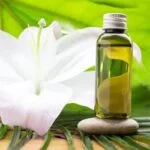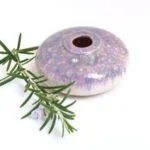Are aromatherapy diffusers healthy? Aromatherapy has been used for centuries as a natural and holistic approach to enhance physical, emotional, and mental well-being. In recent years, the use of aromatherapy diffusers has gained popularity as a convenient way to enjoy the benefits of essential oils. This article will explore the benefits of using aromatherapy diffusers, how they work, the types of oils to use, potential health risks, and tips for safe and healthy usage.
Aromatherapy is the practice of using natural plant extracts, known as essential oils, to promote overall health and wellness. These oils can be used in various ways, such as through inhalation or topical application. Aromatherapy diffusers are devices that disperse these essential oils into the air, allowing for easy breathing and absorption of the oils’ beneficial properties.
One of the primary benefits of aromatherapy diffusers is their ability to create a calming and relaxing environment. They can also help alleviate stress and anxiety, improve sleep quality, boost mood and energy levels, and even provide relief from certain ailments.
With so many potential advantages, it’s no wonder that aromatherapy diffusers have become a popular choice for those seeking natural remedies for their well-being. However, it’s essential to consider both the benefits and potential health risks associated with their use.
Benefits of Aromatherapy Diffusers
Aromatherapy diffusers offer a wide range of benefits for both physical and mental health. Through the use of essential oils, these devices can promote relaxation, improve sleep quality, relieve stress, and even alleviate certain physical ailments. One of the primary advantages of using aromatherapy diffusers is their ability to disperse essential oils into the air in a fine mist, allowing them to be easily inhaled and absorbed by the body.
In addition to their potential health benefits, aromatherapy diffusers can also serve as natural air fresheners. Many essential oils have antimicrobial properties that can help purify the air and eliminate bacteria and viruses. This makes them particularly useful for individuals with respiratory issues or those looking to create a clean and healthy living environment.
Another benefit of aromatherapy diffusers is their versatility. They come in various styles – from ultrasonic and nebulizing diffusers to reed diffusers – allowing users to choose one that best suits their preferences and needs. Additionally, there is a wide variety of essential oils available, each with its own unique scent and therapeutic properties, giving users the flexibility to customize their aromatherapy experience.
| Aromatherapy Benefit | Description |
|---|---|
| Promotes Relaxation | Helps reduce stress and anxiety, promoting a sense of calm. |
| Improves Sleep Quality | Certain essential oils can aid in falling asleep faster and enjoying deeper sleep. |
| Air Purification |
How Aromatherapy Diffusers Work
Aromatherapy diffusers work by dispersing essential oils into the air, allowing their aroma to fill a room. There are several different types of diffusers, each using a different method to release the oils. Some popular types of diffusers include ultrasonic, nebulizing, heat, and evaporative diffusers.
Ultrasonic Diffusers
Ultrasonic diffusers use water and electronic frequencies to create vibrations that break the essential oils into tiny microparticles. These microparticles are then released into the air as a fine mist, creating a pleasant aroma throughout the room.
Nebulizing Diffusers
Nebulizing diffusers do not require heat or water; instead, they use an atomizer to create a fine mist of pure essential oil particles. This type of diffuser is known for its ability to preserve the therapeutic properties of the essential oils due to its lack of heat or water.
Heat Diffusers
Heat diffusers utilize heat to gently warm the essential oils and release their scent into the air. While these may be effective in dispersing aromas, some argue that heat can alter the chemical composition of certain essential oils, potentially affecting their therapeutic benefits.
Evaporative Diffusers
Evaporative diffusers use a fan to blow air through a filter or pad containing essential oils. As the air passes through the pad, it evaporates the oil and releases its aroma into the surrounding area. This type of diffuser is simple and does not require any heat or water.
Understanding how aromatherapy diffusers work can help individuals choose the best type for their needs and preferences when looking to incorporate aromatherapy into their daily lives. Ultimately, whether a particular diffuser is healthy will depend on various factors such as individual sensitivities and proper usage practices.
Types of Aromatherapy Oils to Use in Diffusers
Aromatherapy diffusers are a popular way to enjoy the benefits of essential oils, but it’s important to choose the right type of oil for your diffuser. There are several types of essential oils that can be used in diffusers, each with its own unique properties and potential health benefits.
One of the most popular types of essential oils for use in aromatherapy diffusers is lavender oil. Lavender is known for its calming and relaxing properties, making it an ideal choice for those looking to create a soothing atmosphere in their home or workspace.
Another commonly used essential oil for aromatherapy diffusers is eucalyptus oil. Eucalyptus has a refreshing and invigorating scent that can help to clear the mind and promote feelings of alertness and energy. It’s also often used to help relieve symptoms of congestion and respiratory issues.
Citrus oils such as lemon, orange, and grapefruit are also popular choices for use in aromatherapy diffusers. These oils have bright, uplifting scents that can help to improve mood and promote a sense of positivity and well-being.
| Essential Oil | Properties |
|---|---|
| Lavender | Calming and relaxing |
| Eucalyptus | Invigorating and refreshing |
| Citrus (lemon, orange, grapefruit) | Uplifting and mood-enhancing |
Potential Health Risks of Aromatherapy Diffusers
Aromatherapy diffusers have become increasingly popular for their potential health benefits, but it’s important to be aware of the potential health risks associated with their use. While aromatherapy can have positive effects on one’s well-being, it is not without its drawbacks.
Respiratory Irritation and Allergies
One potential health risk of using aromatherapy diffusers is the possibility of respiratory irritation and allergies. Some individuals may be sensitive to certain essential oils, especially when they are dispersed into the air through a diffuser. This can result in symptoms such as coughing, sneezing, or even difficulty breathing for those with asthma or other respiratory conditions.
Toxicity
Another concern with aromatherapy diffuser use is the risk of toxicity from certain essential oils. When inhaled or absorbed through the skin in high concentrations, some essential oils can be toxic and cause adverse reactions in the body. It’s important to research and carefully select essential oils that are safe for use in a diffuser, especially if you have pets or young children in your household.
Fire Hazard
In addition to health concerns, there is also a potential fire hazard associated with using aromatherapy diffusers. Some models involve heating elements that could pose a risk if left unattended or used improperly. It’s crucial to follow the manufacturer’s instructions and guidelines for safe usage, as well as ensuring that the diffuser is placed on a stable surface away from flammable materials.
Being aware of these potential health risks can help individuals make informed decisions about using aromatherapy diffusers in their homes. With proper precautions and responsible usage, many people find that they can enjoy the therapeutic benefits of these devices without experiencing any negative effects on their health.
Tips for Safe and Healthy Aromatherapy Diffuser Use
Aromatherapy diffusers are a popular way to experience the benefits of essential oils in the comfort of your home. However, it is important to use these diffusers safely to ensure that you are not putting your health at risk. Here are some tips for safe and healthy aromatherapy diffuser use:
- Choose high-quality essential oils: When using an aromatherapy diffuser, it is important to use pure, high-quality essential oils. Avoid synthetic or diluted oils, as they may not provide the same therapeutic benefits and could potentially contain harmful chemicals.
- Use the recommended amount of essential oil: Most diffusers come with instructions on how many drops of essential oil to use. It is important to follow these guidelines to avoid overwhelming your senses or causing any adverse reactions.
- Avoid prolonged exposure: While aromatherapy can have many benefits, it is best to limit your exposure to essential oils, especially if you are new to using them. Start with short sessions and gradually increase the time as you become more comfortable with the scents.
In addition to these tips, it is also important to properly clean and maintain your aromatherapy diffuser to prevent mold and bacteria from building up. Regular cleaning will help ensure that your diffuser continues to work effectively and safely. By following these tips for safe and healthy aromatherapy diffuser use, you can enjoy the many benefits of aromatherapy while minimizing any potential risks to your health.
Best Practices for Cleaning and Maintaining Aromatherapy Diffusers
Aromatherapy diffusers are a great way to benefit from the therapeutic properties of essential oils, but it’s important to use them safely and maintain them properly. Regular cleaning and maintenance can help ensure that your diffuser continues to function effectively and doesn’t pose any health risks.
To clean your aromatherapy diffuser, start by unplugging it and emptying any remaining water and essential oil mixture. Use a cotton swab or soft cloth to wipe out the reservoir, being careful not to damage any delicate parts. For a deeper clean, you can mix equal parts water and white vinegar and use this solution to clean the inside of the reservoir. Be sure to rinse it thoroughly afterward.
In addition to regular cleaning, it’s important to maintain your aromatherapy diffuser by following the manufacturer’s guidelines for use. This may include using filtered or distilled water in the diffuser, as tap water can lead to mineral buildup over time. Proper maintenance can help extend the life of your diffuser and ensure that it continues to provide safe and healthy aromatherapy benefits for years to come.
Conclusion
In conclusion, aromatherapy diffusers can be a healthy and beneficial addition to your wellness routine when used properly. The benefits of aromatherapy, including stress reduction, improved sleep, and mood enhancement, are well-documented and can greatly improve overall well-being. By choosing high-quality essential oils and following safe usage practices, the potential health risks associated with aromatherapy diffusers can be minimized.
When using aromatherapy diffusers, it is important to be mindful of the types of essential oils being used. Certain oils may cause allergic reactions or respiratory issues in some individuals, so it is crucial to do thorough research and consult with a healthcare professional if necessary. Additionally, regular maintenance and cleaning of the diffuser can help prevent bacterial growth and ensure that the device functions properly.
Ultimately, while there are potential health risks associated with aromatherapy diffusers, when used responsibly they can contribute to a healthier lifestyle. It is important for individuals to educate themselves on safe usage practices and seek guidance from professionals when needed in order to fully enjoy the benefits of aromatherapy without compromising their health.
Frequently Asked Questions
Is It Safe to Breathe Essential Oils in a Diffuser?
Inhalation of essential oils from a diffuser is generally considered safe for most people when used properly. However, it’s important to follow the manufacturer’s instructions and use the recommended amount of essential oil in the diffuser.
Some essential oils can trigger allergies or respiratory issues in some individuals, so it’s important to be cautious and mindful of how your body responds.
Are Aromatherapy Diffusers Good for You?
Aromatherapy diffusers can have potential health benefits for some people. They are often used to promote relaxation, improve sleep quality, alleviate stress, and uplift mood.
The inhalation of certain essential oils may also have antimicrobial properties that can help purify the air in a room. However, individual responses to aromatherapy may vary, so it’s important to pay attention to how your body reacts to different scents.
What Are the Side Effects of Aromatherapy Diffusers?
Side effects associated with aromatherapy diffusers are generally mild and may include allergic reactions, skin irritation if the oil comes into direct contact with the skin, headaches or dizziness from inhaling too much of a particular scent, and potential respiratory issues in individuals with asthma or other sensitivities.
It’s important to use caution when using aromatherapy diffusers, especially around young children or pets who may be more sensitive to certain scents.

Are you looking for a natural way to improve your health and wellbeing?
If so, aromatherapy may be the answer for you.





